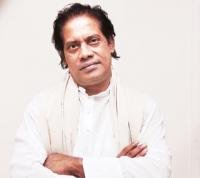Please join Urhalpool Magazine’s 2nd Annual Award Ceremony on Wednesday. January 27th @6:30PM in Collaboration with: Rabindranath Tagore center, ICCR & American Center, Kolkata
Shakti Chattopadhyay Lifetime Bengali Literary Achievement Award (Rs25,000): Sunil Gangopadhyay
Nirmal Chandra Gangopadhyay Bengali Literary Award for an Young writer (Rs15,000): Mandakranta Sen
Dr. Sishir Kumar Das Award for research in Bengali Literature: (Rs,20,000): Dr. Sibaji Bandyopadhyay
Pushpa Little Magazine Award: (Rs10,000): Bibhab
Urhalpool(www.urhalpool.com) January Issue, focusing on Mexican poets/writers has been released.
Special Article on Translation by Goutam Datta

 Ask a Bengali what in his/her bookcase does he/she treasure most? And the answer will be – the sixteen volume set of Rabindra Rachanabali, that is, the complete works of Rabindranath Tagore. Over the years, the works of Tagore has been one of the key source of revenue for Bishwabharati. However, after the expiry of the extended copyright, publishers were free to reprint Tagore without having to pay any royalty to Bishwabharati. The Society for Natural Language Technology Research (SNLTR) grabbed this opportunity and made the entire published works of Tagore (Rabindra Rachanabali) available online through their website
Ask a Bengali what in his/her bookcase does he/she treasure most? And the answer will be – the sixteen volume set of Rabindra Rachanabali, that is, the complete works of Rabindranath Tagore. Over the years, the works of Tagore has been one of the key source of revenue for Bishwabharati. However, after the expiry of the extended copyright, publishers were free to reprint Tagore without having to pay any royalty to Bishwabharati. The Society for Natural Language Technology Research (SNLTR) grabbed this opportunity and made the entire published works of Tagore (Rabindra Rachanabali) available online through their website 